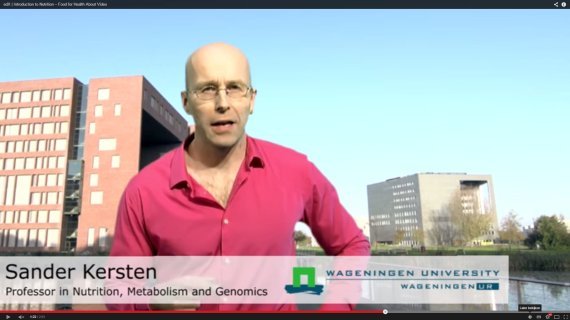And so the university took its first steps into the world of Massive Online Open Courses, or MOOCs. These online courses, consisting of short films and assignments, are free to participants all around the world. For the university, they are an online calling card, as well as a laboratory for educational innovation. Already about 34,000 students from 196 different countries have signed up for Introduction to Nutrition. Because MOOCs require no commitments, usually only a fraction of the participants fi the course. The coming months will show how Wageningen scores on that point. ‘I would consider 10 percent fantastic,’ says Ulrike Wild, programme director of Online Learning. ‘As far as I’m concerned, it’s up to them whether they do the assignments and get a certificate but I really hope they watch the films and participate actively.’
As far as I am concerned, it’s up to them wether they do the assignments and get a certificate
Ulrike Wild
The MOOC should provide Wild with a wealth of data. ‘Which behaviour in the early stages of the course is a predictor of success, for in- stance?’ The data will also help with improving the teaching materials. ‘This is about such basic things as: this firstwas 6 minutes long and everyone clicked it away after 3 minutes. So what happens after 3 minutes?’ A second MOOC will follow later this month and in the autumn another two courses will be announced for 2016
| Top 10 countries | ||
|---|---|---|
| 1 | USA | |
| 2 | India | |
| 3 | Canada | |
| 4 | UK | |
| 5 | Netherlands | |
| 6 | Australia | |
| 7 | Spain | |
| 8 | Germany | |
| 9 | Mexico | |
| 10 | Brazil |

